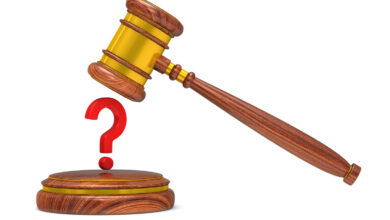The Case Against Kavanaugh

What lies behind Brett Kavanaugh’s gold-plated resume?
Elections have consequences. Nobody can expect Donald Trump to nominate another Ruth Bader Ginsburg to the Supreme Court, any more than they could expect Barack Obama to nominate another John Roberts. Conservatives nominate conservatives. Progressives nominate progressives. I get it.
But are a good resume and a genial judicial temperament enough?
Maybe once upon a time, but not today.
Like it or not, the Supreme Court nomination process has been politicized
Like it or not, the Supreme Court nomination process has been politicized. With almost a year left in the Obama administration, Republicans refused to grant an audience to a superbly qualified candidate, Merrick Garland, much less a committee hearing or a Senate vote. Their hope (later realized in full) was that they could steal the nomination for themselves. When Trump used the stolen nomination to nominate Neil Gorsuch, it turned out that Gorsuch didn’t have sufficient support to be confirmed under existing Senate rules. So the Republican leadership simply changed the rules, using the so-called “nuclear option” to prevent a Democratic filibuster.
Sure, “two wrongs don’t make a right” is a perfectly good cliché. But so is “don’t bring a peashooter to a gunfight.” Or how about “don’t unilaterally disarm, it will only get you killed.” Just ask Muammar Gaddafi.
Unilateral disarmament is precisely what Republicans are demanding of Democrats when they piously invoke a time when candidates right and left received near unanimous confirmation votes. It’s reminiscent of when a pro wrestler cracks open an opponent’s head with a “foreign object” and then accuses the other guy of cheating. Or when the most vile, mean-spirited president in American history whines that his critics are “mean” to him. Yeah, right.
Still, if Democrats want to reach beyond their base supporters, they can’t oppose Kavanaugh just because they didn’t appoint him.
Principled resistance to Kavanaugh starts with a recognition that the stakes are historically high.
The Supreme Court has never been so divided. There are 4 conservatives who predictably vote as a block in hot-button political cases, and 4 liberals who also tend to vote as a block. Justice Kennedy, whom Kavanaugh would replace, more often sided with the conservatives, but he was correctly seen as the swing vote. That impacted not only the way cases were decided, but also the way advocates presented their arguments to the Court. The lawyers in every hot-button case shaped their arguments to appeal to Justice Kennedy.
All of that will change the day Kavanaugh takes his place on the Court. He would cement an iron-clad 5-4 conservative majority. There would be no more swing vote, and no reason for Supreme Court advocates to look for common ground.
The stakes are historically high
What’s at stake?
Plenty. A woman’s right to control her own reproductive rights. Affirmative action. Gay marriage. Access to health care. Political gerrymandering. Voter suppression. Anti-discrimination laws. And more.
With Kavanaugh on the Court, each of those issues is far more likely to be decided by the conservative majority on a pure party-line 5-4 vote.
Supporters of Kavanaugh might say, with some legitimacy, “Too bad. We won the election, so we get to put any qualified candidate on the Court. You want somebody different on the Court, go elect a different president.”
But that argument loses some of its logical force, and all of its political and moral force, when you factor in that this nomination was stolen from Barack Obama and Merrick Garland. Obama also won an election, two of them in fact, and you didn’t hear any Republicans saying that he was entitled to nominate a qualified candidate who shared his legal philosophy.
(And please, please don’t trot out the non-existent “Biden Rule.” There is no such thing. Biden gave a speech in late June of 1992, when there was no Supreme Court vacancy, urging that if a vacancy should occur, President Bush “should consider” waiting until after the November election to name a nominee. That was three months later in the election cycle than the nomination of Garland, and Biden never suggested that a nominee, if selected, should be denied confirmation hearings in the Senate.)
The Trump factor can’t be ignored
Then there’s the Trump factor. The fact that Trump nominated Kavanaugh, of course, isn’t by itself disqualifying. But the dysfunction and illegality surrounding Trump cannot be ignored.
Trump is currently under investigation for serious crimes by the Special Counsel, the Southern District of New York, and the State of New York. Maybe others. His erstwhile personal attorney has directly implicated him, under oath, in criminal acts. The State of New York has all but branded the Trump Foundation as a criminal enterprise, operating in complete disregard of the law. Trump’s business entity, the Trump Organization, is being investigated for a whole raft of crimes, from tax fraud to money laundering.
Being under criminal investigation does not, by itself, mean that Trump should not be permitted to nominate a judge to fill a vacancy on the Court. But in Kavanaugh, Trump has not just nominated a judge, he has nominated the one federal judge who has staked out the most extreme possible position on the limits (or more accurately, the lack of limits) of presidential power. He has not only written that Congress should pass a law shielding presidents even from being investigated (forget about indicted) while in office, but he also taken an extreme legal position, far outside the mainstream, that makes it all but certain that, given the chance, he would shut down Special Counsel Robert Mueller’s investigation.
In other words, it looks like the fix is in. Trump has not only selected his own judge, he has selected the one judge most likely to rule in his favor.
Kavanaugh can also be opposed on more traditional grounds.
The standard measure of a candidate who has served as a federal judge is to look at his or her judicial opinions.
What matters is not so much whether the judge subscribes to a particular judicial philosophy. There’s plenty of room for debate between “strict constructionists” and those who view the law as a more organic system that must evolve as society evolves. Excluding one school or the other from the Court would mean that nobody could ever get confirmed.
What matters more is whether a judge’s opinions reflect a consistent, principled and intellectually honest application of that philosophy. If you’re a strict constructionist, be a strict constructionist and let the political chips fall where they may. Don’t bend your legal analysis to fit your desired political result.
Judge Kavanaugh has described his judicial philosophy as “straightforward.” The job of a judge, he says, is to interpret statutes and the Constitution “as they are written,” informed by history, tradition, and precedent.
Fair enough. If he has lived up to that standard, he may deserve the benefit of the doubt.
But he hasn’t.
Some of Kavanaugh’s decisions raise a serious concern that an ideologically extreme political partisan lies submerged just beneath a façade of modest deference to precedent
There is a disturbing pattern running through Kavanaugh’s decisions in which he abandons the straightforward approach of interpreting statutes as they are written. Rather than being guided by the plain language of the statute in question, or by binding precedent interpreting that language, Kavanaugh has too often tied his reasoning in knots to reach for a politically favored result.
There are several examples, but I’ll stick with one to demonstrate the point.
Agri Processor v. NLRB was an appeal from an Administrative Law Judge’s ruling that the company’s refusal to bargain with employees was an unfair labor practice. Agri Processor’s employees had voted to join the United Food and Commercial Workers union, but the company claimed that most of the workers – its own workers whom the company itself had hired – were not “employees” entitled to protection because they were “undocumented aliens.”
The DC Court of Appeals affirmed the ALJ’s ruling, finding that there was no exception for undocumented aliens in the NLRB’s expansive definition of “employee.” Not only that, but there was also a Supreme Court decision squarely on point, holding precisely that undocumented aliens “plainly come within the [NLRB’s] broad statutory definition of ‘employee.’”
This should have been the ultimate no-brainer for a judge who claims to interpret statutes as they are written and to follow Supreme Court precedent. The statutory language was clear and unambiguous, and the exact issue in question had been decided by the Supreme Court.
But that didn’t get Kavanaugh where he wanted to go.
Rather than relying on the clear statutory language and a dead-on Supreme Court holding, Kavanaugh pretended to find support for his decision by twisting the meaning of language in the decision that was not part of the Court’s holding. The language relied upon by Kavanaugh was, as lawyers say, pure “dictum,” or language not essential to the Court’s holding. And worse, not even the dictum suggested that undocumented aliens were not employees under the NLRB’s definition. After all, the Court’s actual holding had been precisely the opposite.
To call Kavanaugh’s pretzel logic a reach would be an enormous understatement.
No judge who reads statutes as they are written and follows precedent has arms that long. What would not be a reach would be to view this, not as the action of an impartial judge who just calls legal balls and strikes, but as the the action of a result-oriented political actor who favors corporate interests and has a Trumpian view of immigration.
That, by itself, warrants serious concern that an ideologically extreme political partisan lies submerged just beneath a façade of modest deference to precedent.
Added to the politicization of the Court, the circumstances under which Kavanaugh was nominated, the Trump factor, and the enormous stakes, there is more than enough to justify principled opposition to Kavanaugh’s confirmation.





Excellent article, as usual.
Great commentary of why not to appoint Kavanaugh. During baseball season, let’s strike him out rather than let him hit a grand slam homer when he gets appointed. I am on your team!